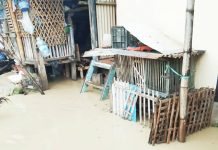
THE Philippine government, through the Department of Agriculture (DA), is banning the importation of poultry, domestic and wild birds from Argentina following the outbreak of bird flu in the South American country.
On Wednesday, September 17, the DA said Agriculture Secretary Francisco Tiu Laurel Jr. issued Memorandum Order No. 48, which prohibits the entry to the country of poultry meat, day-old chicks, eggs, and semen for artificial insemination from the Latin American nation.
The import ban was issued after the highly pathogenic avian influenza (H5N1) bird flu subtype was detected in the northern region of Buenos Aires on August 17.
The DA said Argentine authorities reported the avian flu outbreak to the World Organization for Animal Health (WOAH) on August 20.
“We are imposing the import ban because the H5N1 subtype poses a serious risk to both poultry and public health,” said Tiu Laurel.
“As directed by President Ferdinand Marcos Jr., the DA must protect not only food security but also public health,” added the Agriculture chief.
The DA said the import restriction directs the Bureau of Animal Industry to immediately suspend all applications and the issuance of sanitary and phytosanitary import clearances for poultry commodities from Argentina.
The Agriculture department noted that culling due to bird flu outbreaks has “already cost the Philippine poultry industry hundreds of millions of pesos and thousands of jobs.”
As of September 10, after Camarines Sur has been declared avian influenza-free, eight provinces across four regions remain affected by the virus, it said.
The DA said it continues to monitor global developments to safeguard both the local poultry industry and public health. (GMA Integrated News)







